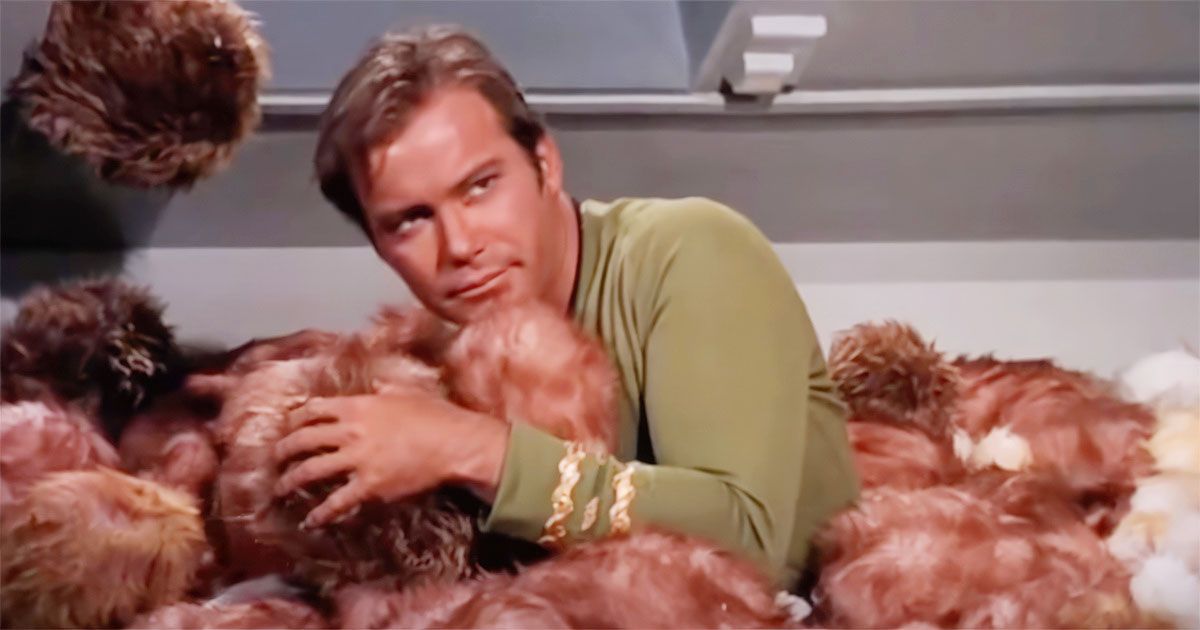Remembering "The Trouble with Tribbles"
Explore "The Trouble with Tribbles," a classic "Star Trek" episode blending humor and science fiction to address complex themes and humanity in space.

In the storied annals of "Star Trek: The Original Series," few episodes have captured the imagination and affection of audiences quite like "The Trouble with Tribbles." And frankly, I am one of those captivated fans.
This episode, a deft blend of science fiction and comedy, is a testament to the series' ability to weave together engaging narratives with thought-provoking themes under the guise of entertainment. It's a tale that not only provides a respite from the often serious and philosophical undertones of the series but also underscores "Star Trek's" unique ability to address the complexities of life and humanity in space.
"The Trouble with Tribbles" first graced television screens in December 1967, during the show's second season.
David Gerrold, an unknown writer at the time who would later become one of the series' most celebrated contributors, wrote the episode that introduces the titular Tribbles - small, furry creatures that are both endearing and highly reproductive.
The story unfolds on Space Station K-7 and the nearby planet of Sherman's Planet, where the USS Enterprise is drawn into a dispute over the rights to the planet, contested by the Federation and the Klingon Empire.
At the heart of "The Trouble with Tribbles" is a seemingly simple problem: the rapid multiplication of these adorable creatures. Yet, beneath this straightforward premise lies a rich tapestry of themes, including the consequences of unchecked population growth, the ecological impacts of introducing non-native species to new environments, and the often-overlooked dangers of seemingly benign creatures. These themes resonate with contemporary concerns about invasive species and environmental stewardship, illustrating "Star Trek's" prescience and its ability to comment on real-world issues through the prism of science fiction.
The episode is also notable for its exploration of the Federation-Klingon conflict, offering insights into the geopolitical tensions that mirror the Cold War anxieties of its time. Through the Tribble-infested narrative, "The Trouble with Tribbles" subtly comments on the absurdities of political rivalries and the potential for common, albeit unusual, challenges to unite adversaries. The Klingons' disdain for the Tribbles, juxtaposed with the Federation citizens' affection for them, serves as a metaphor for the arbitrary nature of enmities based on ideological differences.
Moreover, "The Trouble with Tribbles" showcases the series' character dynamics, particularly the humor and humanity of Captain James T. Kirk and his crew. The interactions among the Enterprise crew, the Klingons, and the station's officials reveal the strengths and vulnerabilities of each character, enriching the narrative with humor and depth. The episode's comedic elements, from the Tribbles' insatiable appetite for quadrotriticale to their penchant for falling on Captain Kirk's head, provide a counterbalance to the series' more serious episodes, demonstrating the versatility of "Star Trek" and its creators.
In the years since its original broadcast, "The Trouble with Tribbles" has achieved iconic status among "Star Trek" fans and beyond. Its influence extends to subsequent series in the "Star Trek" franchise, literature, and popular culture, cementing its place as a beloved chapter in the "Star Trek" saga. The episode's blend of humor, social commentary, and science fiction exemplifies the enduring appeal of "Star Trek: The Original Series," a series that continues to inspire and entertain audiences with its vision of the future.
"The Trouble with Tribbles" stands as a shining example of "Star Trek's" ability to tackle complex issues with levity and wit, reminding us that, even in the far reaches of space, the most mundane problems can lead to the most entertaining adventures. In this light, the episode is not just a piece of television history but a timeless narrative that speaks to the enduring human spirit, our capacity for compassion, and the universal quest for understanding in an ever-expanding universe.
I would recommend rewatching if it has been a while, I think you will find that you still love it.
